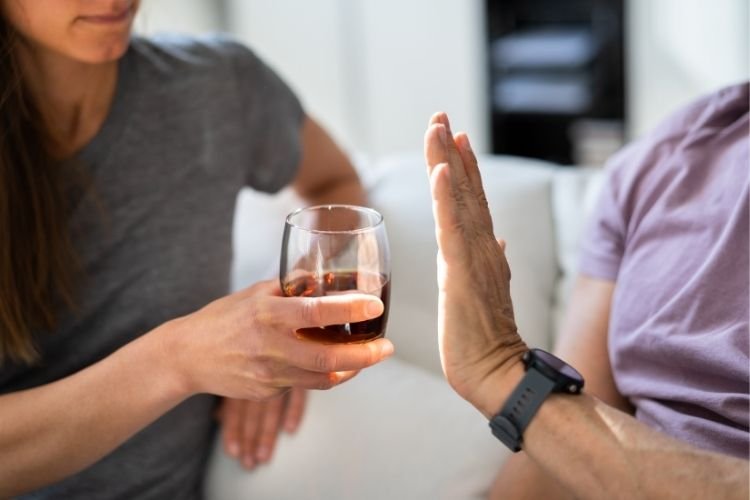![]()
![]()

Getting rid of alcohol addiction isn’t just about stopping drinking , it’s about taking back your life. It’s about waking up without regret, restoring broken relationships, and feeling physically and mentally free. The decision to stop drinking is deeply personal, but it’s also universally transformative. For many, alcohol is a temporary escape that turns into a lifelong trap.
The book Getting Rid of Alcohol Addiction in Few Steps offers a hopeful, step-by-step guide to recovery. It breaks down how to recognize addiction, develop a strategy, build a support system, and ultimately create a new, empowering lifestyle.
To begin getting rid of alcohol addiction, you must first understand how it works. Addiction isn’t a moral failing , it’s a complex interplay of physical, emotional, and psychological factors.
Some common characteristics of alcohol addiction include:
Alcohol affects brain chemistry by releasing dopamine the “feel good” chemical which creates a reinforcing cycle of pleasure and dependence. Over time, your tolerance increases, and you drink more to achieve the same effect. What once felt like a choice becomes a compulsion.
The book emphasizes that getting rid of alcohol addiction starts with awareness understanding that your body and mind are reacting to chemical conditioning, not weakness.
One of the most powerful tools in getting rid of alcohol addiction is self-honesty. Many people live in denial, downplaying how much they drink or convincing themselves they can stop “any time.” But progress only begins when you admit there’s a problem.
Ask yourself:
If you answered yes to any of these, the path to freedom starts now not when things get worse.
Getting rid of alcohol addiction is tough. But it becomes easier when you have a strong “why.”
Your “why” is the anchor that holds you steady when cravings or doubt show up. It could be:
The book encourages readers to write down their reasons and revisit them daily. When motivation wavers, your purpose pulls you forward.
After you’ve set your goals to either stop or cut back your drinking, write down some ideas on how you can help yourself accomplish these goals. For example:
Quitting alcohol isn’t one-size-fits-all. Getting Rid of Alcohol Addiction in Few Steps walks you through developing a personalized recovery plan that fits your life.
Essential steps in your plan include:
Having a plan gives you structure and direction — two things alcohol addiction often steals.
Getting rid of alcohol addiction isn’t just about removing alcohol — it’s about replacing it with habits that nourish your body and soul.
Some healthy replacements include:
When you develop new habits, you rebuild your identity as someone who chooses wellness over destruction.
Recovery doesn’t happen in isolation. Getting rid of alcohol addiction is much more effective when you have a support system. This could be:
Having people to talk to keeps you accountable and reminds you that you’re not alone. Many people feel ashamed when they’re struggling, but connection is what breaks the cycle of secrecy.
When you’re struggling with alcohol cravings, try these strategies:
Alcohol takes a toll on your system, but your body is incredibly resilient. As you move forward in getting rid of alcohol addiction, you’ll begin to heal.
Physical improvements may include:
Mental benefits may include:
The book reminds us that detox is only the beginning. Healing is a journey — and you deserve every step of it.
Relapse isn’t failure , it’s a detour. But with the right tools, you can reduce your risk and bounce back stronger if it happens.
Key strategies include:
Recovery isn’t just about quitting , it’s about becoming someone who chooses growth, clarity, and peace.
Getting rid of alcohol addiction transforms who you are. Over time, you stop seeing yourself as “someone with a problem” and start seeing yourself as:
The book encourages creating a new vision of your identity and future , one where alcohol no longer has the steering wheel.
Getting rid of alcohol addiction is one of the most courageous things you can do. It’s not about being perfect , it’s about showing up for yourself every single day.
You don’t need to have it all figured out. You just need to take the next step. Whether that’s reaching out for help, reading a recovery guide, or simply deciding that you want better , that step matters.
